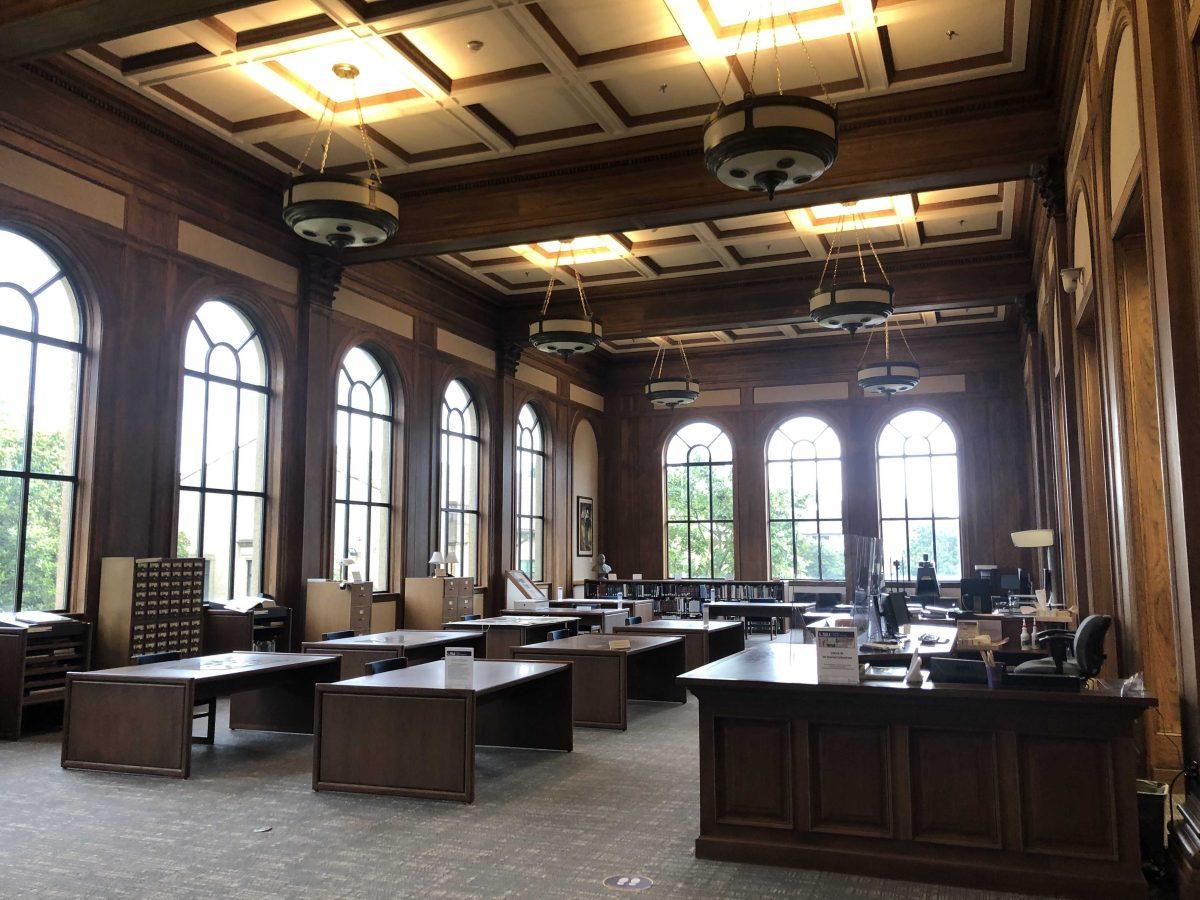The Hill Memorial Library holds the truth to the entire Middleton controversy and the documents the university used to make their decision to ultimately disassociate from Troy H. Middleton’s likeness.
The university used various letters, documents and records to discover where LSU’s administration, including Middleton, stood during the transition to desegregate the university.
The period after Brown v. Board of Education was a very uncertain time for institutions of higher education, especially in the South. Movements to both integrate schools and keep Black students segregated worked tirelessly to achieve their goals.
Harry P. Gamble, an attorney from New Orleans, devoted his efforts to uphold segregation and state’s rights after Brown v. Board. He founded the American Society for the Presentation of State Government and Racial Integrity in 1955. Gamble tried reaching out to several people throughout the South to join his cause, including Middleton.
“Certainly I did not put them [colored students] here, nor did I influence the court in its decision,” Middleton said in a letter to Gamble in 1954. “However the case may be, I am in no position to violate the order of a Federal court.”
Gamble was able to rally several supporters from all over the state to join his organization, including former Chairman of the Board of Supervisors J. Stewart Slack and Dean Emeritus Clarence Ives. Middleton was never one of those people, however. Middleton instead referred five LSU professors and two supervisors, who all supported segregation, to join Gamble.
“The great majority are not in sympathy with what is taking place in the area of segregation in the country,” Middleton said in this letter to Gamble. “However, it is my feeling that most faculty members prefer to stay out of the controversy and let the subject be determined through the courts.”
Middleton and his Board of Supervisors knew no matter what they did, people would not be satisfied. Black students were admitted to LSU only “pursuant of court orders,” they were not freely accepted by the university. Several alumni and constituents of LSU were angry about Black students being on campus at LSU and wrote Middleton heated letters in their opposition.
Although most of LSU’s governing body opposed integration, Middleton upheld the fact that the school and state value law and order.
“The action of the Board of Supervisors in declining to alter its admissions policy does not constitute an open invitation to Negroes to apply for admission to the University,” Middleton said in a letter to an anti-segregation LSU alumnus working in Stanford in 1956. “It does mean that the Board, like a majority of the citizens of Louisiana, believes in law and order and that it respects the decisions of our courts. It also means that the Board… should set an example as a responsible, law-abiding body.”
These documents are under the “Consent Decree” collection at Hill Memorial. Consent Decree essentially is the standard the federal government placed to allow for integration. Any school that refused to enroll Black students would lose federal funds. The “Consent Decree” collection is the primary collection the university used in their decision regarding Middleton.
Middleton’s writings during this time could be seen as contradictory and confusing. Although LSU maintained its admission requirements, Middleton seemed to be both for and against admitting Black students.
“All things being equal, I think it would be to the best interest of LSU not to change the requirements at this time,” Middleton said in his statement. “Any such requirement… should be based upon one’s ability to do college and not upon his color.”
LSU as an institution, at the end of the day, reluctantly allowed Black students to enroll. Several students and other members of the LSU community at the time did oppose segregation. Several editorials and letters were sent to the editor of The Daily Reveille to express their criticisms against LSU’s administration.
Middleton said in another statement to his Board of Supervisors that a local newspaper suggested he censor The Daily Reveille.
“When as a citizen one is forbidden to express views on a controversial subject, even involving legislation, my fighting in two world wars to preserve our democratic way of life, and my 12 Battle Stars, was so much time wasted,” Middleton said.
Middleton did uphold the stance that these are the opinions of students and not the stance of the university as an institution.
There is still much to uncover in the Middleton debate within Hill Memorial’s university archives. These documents are accessible to the public with the Middleton family’s lawsuit still looming. LSU’s illustrious, yet rocky, history can be found in endless collections at Hill Memorial Library.





